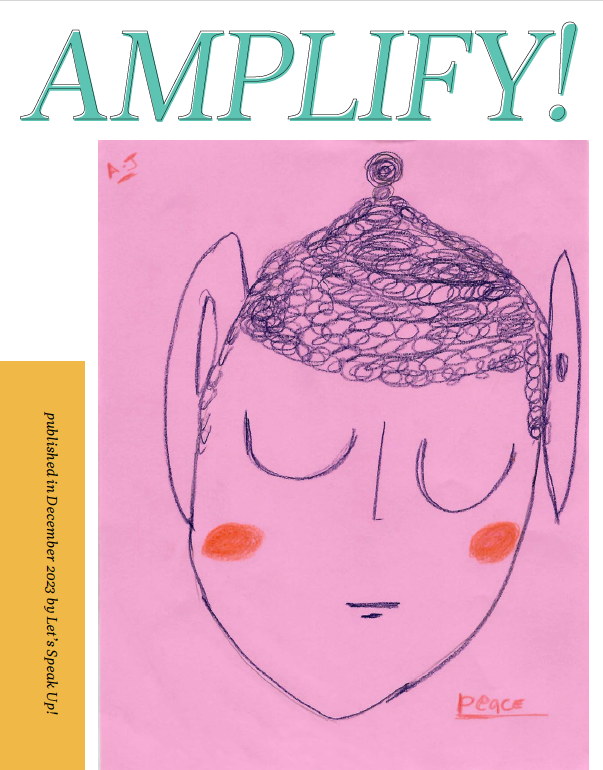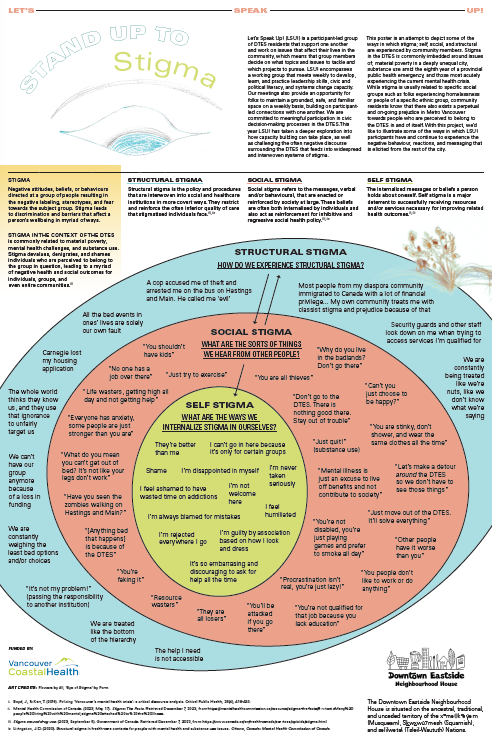Resources
Section inspired by DTES SRO Collab
These are some resources that are useful to read over and check out. This is a great way to start learning more about LSU! The DTES and about some of the local efforts occurring in our community
DTES Collaborative
The DTES SRO Collaborative is an organization which strives to improve the conditions of Single Occupancy Hotels in the DTES. Their website provides insights into their movement, information about SROs, and ways to get involved. For the last few months we have been working with The DTES SRO Collaborative.
The City of Vancouver has created The Vancouver Plan which strives to get people involved with the changes occurring in our city. The Vancouver Plan website contains resources about their initiatives. Activities and cool ways to learn about Vancouver for Young Learners. And ways to get involved!
The UBC Learning Exchange, UBC Library, and Making Research Accessible Initiative have teamed up to create an accessible research portal which contains articles, information, and resources about Vancouver and the DTES. This resource is a great way to learn more about issues that pertain to our community.
We also recommend looking at the videos made available that specifically target the DTES and those living and working in the area (The UBC Learning Exchange. 2017. “Shifting the Story: Advice for Students Learning about the Downtown Eastside.” From Matthew Hume, September 21, 2017. )
The Research 101 Manifesto is a guide which provides information about ways to engage in ethical research and study in the DTES for researchers and students.
Read the final report Downtown Eastside Speaks Up! containing LSU!’s findings
Mission Statement
The DTES community has a rich history of activism. In honoring this, we strive to support our neighbours in speaking up on issues that pertain to them by creating a space for accessible civic engagement guided by community and offering resources and connection.
What do we do?
The DTES Neighbourhood House is running its second iteration of Let’s Speak Up! (LSU!) where we are shifting our focus from board inclusion to finding ways to break down power structures in decision-making for residents in the Downtown Eastside (DTES). Our goal is to find ways for residents to contribute to meaningful decision-making in their neighbourhood, by finding accessible avenues for advocacy that are built by community members. This involves learning together about issues that affect the DTES community, connecting with other residents, organizations, and neighbours, and working alongside others to advocate for change!
LSU! is a participant-led initiative, meaning that group members decide what topics and issues to tackle and which projects to pursue.
We continue to host weekly meetings, holding space for LSU! Participants to discuss, socialize, and support one another while continuing to pursue opportunities to engage with educational and project-based community advocacy.
Past Work
Although our projects are ever changing, here are some of our past projects and what we have achieved through them.
LSU! initial goal when we started in 2017, was around community governance and promoting the inclusion of community members in leadership positions. Our main goal was to have diversity in members who can come together and discuss some of the problems of inclusive governance.
Nobody knows the community better than the community and that is what we aimed to achieve with our inclusive board governance project.
In November 2017 LSU! held a panel discussion in partnership with Vancity’s SFU Office for Community Engagement. The panel addressed why socio-economic diversity on Boards of Directors is important for the sustainability of nonprofit organizations. In this discussion we had a number of community members and individuals serving on boards, who answered questions on the importance of this topic and brought upon ways to achieve this goal of socio-economic diversity.
If you would like to know more about this panel discussion check out the older version of our website found here or the transcripts from this panel discussion which can be found here.
In 2020, LSU! wrote and distributed a survey to members of the DTES community on a variety of topics, from healthcare, housing, and harm reduction. The survey was a way to check in on our neighbours and see what challenges they were facing. From this information we are hoping to get a better understanding of those who make up our neighborhood and the community.
LSU! strives to use participatory action research (PAR). PAR has been defined as the “individuals and groups for whom the issue is important should have a genuine role in research and should be the ones to drive the focus and planning of the work” and PAR asks for equal roles and relations to be used when doing research. The process of conducting participatory action research importantly allows community members to take on a position of inquiry and outreach in order to better support and strengthen their community. In contrast to research done and led by academics and external groups, PAR is an approach to ensure that community members are guiding, leading, and benefitting from their own research.
AMPLIFY!
Alongside the UBC Learning Exchange’s Urban Ethnography Field School (UEFS) and funded by UBC’s Community-University Engagement Support (CUES) grant, LSU! in 2023 worked in partnership with a cohort of undergraduate students to Amplify! the community-led model, work and advocacy of the group. Amplify! is modeled after three goals as determined through extended conversation amongst LSU! Peers; 1) to create leadership opportunities for LSU! participants to put into practice their experiences, knowledge, and expertise complimented by the skills and capacities of UEFS students, 2) to provide an opportunity for UEFS students to engage with the DTES community in reciprocal and meaningful ways, and 3) for both groups to work together in hosting a focus group to elicit the ways in which folks members derive meaning, joy, and happiness in the community amidst the often challenging circumstances and contexts of the DTES. Amplify! builds on a decade long relationship between the DTES NH and the UBC Learning Exchange with a focus on asset-based ethnographic learning, research, and student volunteer fieldwork placements.
We hosted a well-received focus group in the Summer of 2023, leveraging the existing skills and expertise of both LSU! participants and students to guide discussions on positivity and joy in community life in the DTES. In concluding that event, we were able to take the discussion topics and publish a booklet in the Autumn, incorporating commonly touched on themes and discussion points in addition to other artistic and creative elements.
Read our booklet (click on the image below to view and download).
STANDING UP TO STIGMA
In 2023, LSU! completed a project exploring and challenging the stigma and discrimination that punctuate the experiences of DTES residents. DTES residents face challenges that are unique to them in the Greater Metro Vancouver area, often coloring their experiences and interactions within and beyond the community based on their perceived material poverty that transcend race, gender, age, and other categorical identities. Standing up to Stigma took a qualitative perspective in investigating the relationships between perceived belonging to the DTES community and the stigma experienced while accessing resources and services from institutionalized sources in the city. We drew on LSU! participant experiences and perspectives to design a poster that would both showcase artistic and design elements in addition to helping educate the ways in which different levels of stigma cyclically reinforce and build upon each other. It is our hope that more educational materials such as our poster can help facilitate productive dialogue and reflection in the ways in which folks who are perceived to belonging to the DTES community are marginalized and subject to often worse outcomes in not only healthcare and social service institutions, but in also daily interpersonal interactions and discourse in the Greater Vancouver area.
Click on the image below to view and download our poster.


